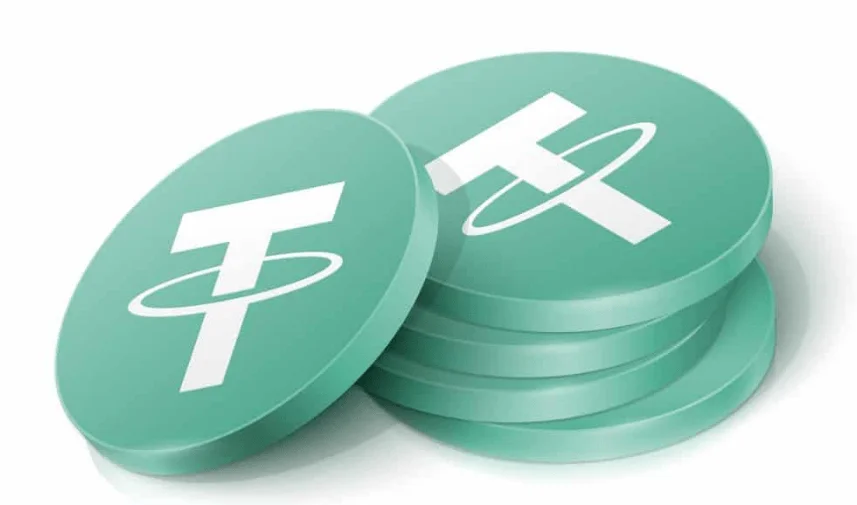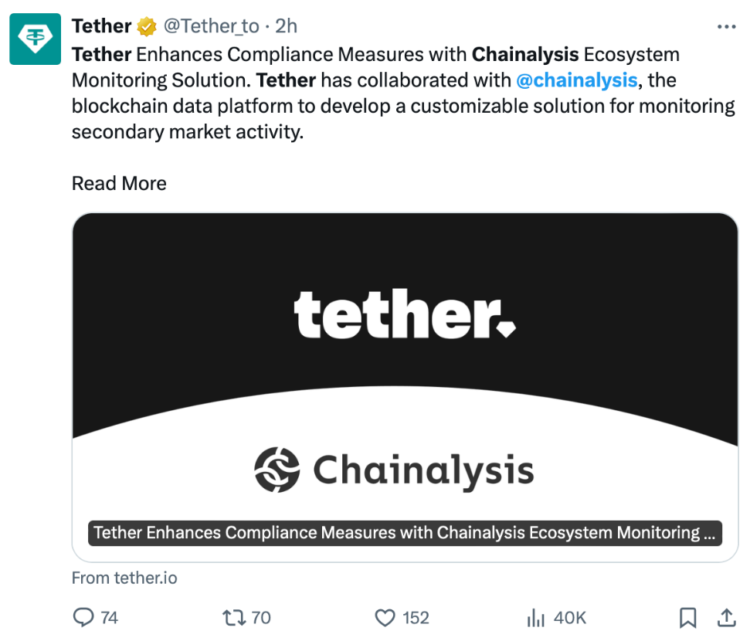Chainalysis will develop a monitoring solution and provide tools to spot illicit activities in the secondary market where Tether trades its stablecoin.

By utilizing the newly acquired functionalities, Tether can gain market intelligence and discern wallets associated with illegitimate or sanctioned addresses.
Several instruments will comprise the new solution. Four of them were detailed in a website announcement by Tether. Sanctions Monitoring will furnish a comprehensive inventory of addresses and transactions associated with entities subject to sanctions. Illicit transfer detectors can identify transactions that may connect to illegal activities, including financing terrorism.
The classification of Tether holders by categories, such as darknet market or exchange, is known as terrorism. The analysis of “significant” USDT holders and their activities will be the focus of the Largest Wallet. CEO of Tether Paolo Ardoino stated:
“Our collaboration with Chainalysis marks a pivotal step in our ongoing commitment to establishing transparency and security within the cryptocurrency industry. […] This collaboration reinforces our proactive approach to safeguarding our ecosystem against illicit activities.”
“To address illicit activities,” Tether has collaborated with authorities in 43 jurisdictions, according to the announcement. However, the organization has faced criticism due to the stablecoin’s purported involvement in illicit operations and the financing of terrorism.
Senator Cynthia Lummis, an advocate for cryptocurrencies, expressed disapproval of Tether by writing to Attorney General Merrick Garland, requesting an inquiry into the involvement of Binance and Tether in the October attacks by Hamas on Israel.
She and Representative French Hill, who also signed the letter, made the allegation that Tether was “knowingly facilitating violations of applicable sanctions laws.”

A January report on organized crime in East and Southeast Asia by the United Nations Office on Drugs and Crime was highly critical of cryptocurrencies’ role in financing the region’s crime, highlighting USDT in particular. In response, Tether stated that the organization disregards USDT’s traceability.
Furthermore, Tether has faced censure due to its purported absence of financial transparency. At $109.8 billion, USDT’s market capitalization is significantly greater than that of its closest rival, USD Coin, which stands at $33.9 billion.
